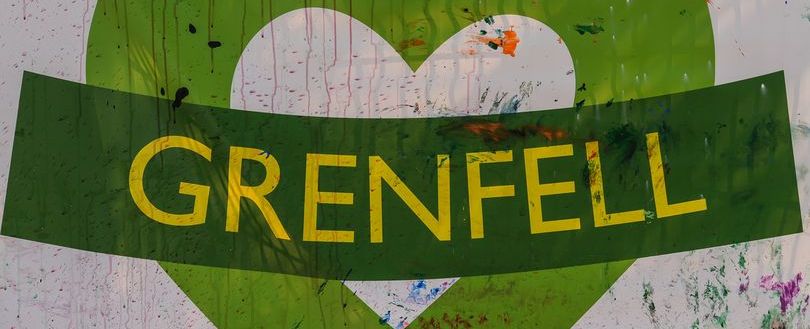
KCTMO mistakenly listed people who died in Grenfell fire as ‘safe’ in the wake of the tragedy
Like it? Share it!
10 May 2022
Teresa Brown, who served as director of housing at the organisation between February 2014 and June 2018, apologised for the “distressing” error after being grilled about a list recording the status of Grenfell residents KCTMO was collecting and updating in the aftermath of the fire.
The list, which was on a spreadsheet being shared via the TMO to the council and other organisations involved in the emergency response, was divided into general – the most up-to-date list of known residents in the tower, those who were missing, and those who were safe. It emerged that several people who died in the fire were inaccurately listed as ‘safe’ in the spreadsheet that was circulated at 12.21pm on 14 June.
Richard Millett QC, lead counsel to the inquiry, said: “We know unfortunately that those people lost their lives in the fire. Do you know why they are listed on the TMO’s list at this time as safe?”
Ms Brown said: “This was one of the first of the list that we produced on the day and this was based on information that was being given to us at the rest centre.
Bereaved family members have previously told the inquiry the distress they felt after wrongly being told their relatives were safe. Ms Brown was also asked about the system whereby KCTMO staff were recording information about residents on pieces of paper in the rest centres. The inquiry heard that this was criticised by Clare Richards, the chief executive of the Clement James Centre, one of buildings that was being used as a rest centre. Ms Brown had gone to that rest centre to help when she arrived at the scene in the early hours of the morning.
Mr Millett read from Ms Richard’s statement: “The TMO staff wrote information on scraps of paper and they didn’t seem to have a system.
“They didn’t seem to be capturing an accurate record of everyone that was arriving at, or leaving, the site and who they were looking for. I offered on a number of occasions for our staff to assist the TMO staff and the use of a laptop to capture all the information on a spreadsheet. They always turned down this offer.”
Ms Brown said she couldn’t remember the offer of laptops.
“I wouldn’t call it scraps of paper – we were using pieces of paper. But we did have a method, we did have a plan. We would have not wanted to start recording information on a different database.
On the claim that the TMO was not recording an accurate record of residents, Ms Brown said they tried to make sure they weren’t missing people through setting up close to the door and phone rounds.
Ms Brown was asked about the evacuation and re-housing of the residents living in the walkways beside the Grenfell Tower. The role of the KCTMO was to facilitate residents moving back in and to offer support and signpost support services where needed.
The council had made the decision to move residents back in the same week of the fire, but the inquiry heard that Ms Brown had concerns about this because some of the homes had no gas, and therefore no hot water or heating, some doors were broken, and there had been break-ins and thefts.
Ms Brown relayed her concerns to Stuart Priestley, chief community safety officer at RBKC at the time of the fire, on 15 June.
“I suggested that returning residents should not be rushed back until we could ensure proper provision of services, rerouting of refuse arrangements, and cleaning up the area,” Ms Brown said in her witness statement.
She said she assumed that Mr Priestley would feed her concerns back into the BECC [Borough Emergency Control Centre].
Mr Millett asked whether Ms Brown believed the council was engaging appropriately at the time with the issues that would affect returning evacuees.
She said: “I think they had made the decision. At this point in time, they had a huge amount of people in hotel accommodation in the middle of the summer and I think they had some very difficult decisions to make about where all these people were going to go.”
Asked if there was anything she would do differently, Ms Brown said the issue of contacting next of kin is something that she “really dwells” on.
“That’s something that residents should work with housing organisations on because we won’t always know the details of next of kin… and clearly there were a lot distressed next of kin looking for information.
“I think it would have been very helpful if we’d had more details that we could have shared with the Casualty Bureau, so they could have communicated with those residents much earlier,” she said, adding it would be very important to have next of kin details in databases going forward.
The inquiry continues.
Related training
Related news
Related resources
-
Euralarm-FAQs-re-Environmental-Product-Declarations-EPDs.pdf 1
27 November 2025
-
Fire Risk Assessors Standard Scope of Services
07 August 2025
